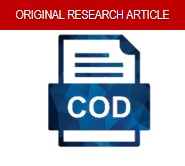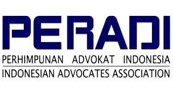Environmental Law, the State, and the People
Examining the Reciprocal Obligations of Protection
DOI:
https://doi.org/10.46924/jihk.v7i1.322Keywords:
Environmental Disputes, Customary Law, Law EnforcementAbstract
Widespread environmental degradation in Indonesia frequently gives rise to conflicts among local communities, the state, and business entities. Although Law No. 32 of 2009 provides a legal framework for resolving environmental disputes, the effectiveness of its implementation remains uncertain. This study examines the efficacy of both litigation and non-litigation mechanisms—particularly mediation and administrative approaches—in addressing such disputes. It also assesses the integration of customary law into the national legal system and identifies critical weaknesses in the enforcement of environmental regulations. Employing a normative legal approach supported by case studies of nine environmental conflict cases, the findings indicate that mediation and administrative legal processes often fail to deliver ecological justice. Moreover, customary law remains insufficiently harmonized with formal legal structures. Weak law enforcement, overlapping institutional authorities, and limited community participation further hinder effective resolution. The study concludes that regulatory reform, the strengthening of customary legal systems, and community empowerment are essential to enhancing environmental dispute resolution in Indonesia.
Downloads
References
Journals
Asnah, Nur. “Kebijakan Dan Tanggung Jawab Pemerintah Dalam Mewujudkan Perlindungan Dan Pengelolaan Sumber Daya Alam Bagi Masa Mendatang.” Jurnal Senpling Multidisiplin Indonesia 1, no. 1 (2023): 1–7. https://doi.org/10.52364/senpling.v1i1.2.
Djumardin, Djumardin. “Mediasi Sebagai Pilihan Penyelesaian Perselisihan.” Jatiswara 30, no. 3 (2015): 479–92. https://doi.org/10.29303/jtsw.v30i3.115.
Fadhilah, Hakim, Rhega Relynada, Febranisa Erin, and Muhammad Rizky Fadhillah. “Implementasi Undang-Undang Nomor 32 Tahun 2009 Tentang Perlindungan Dan Pengelolaan Lingkungan Hidup Terhadap Kebersihan Lingkungan Masyarakat.” Cross-Border 5, no. 2 (2022): 1190–1200. https://journal.iaisambas.ac.id/index.php/Cross-Border/article/view/1260.
Ikbal, Ikbal. “Prinsip Free And Prior Informed Consent Terhadap Perlindungan Masyarakat Adat Atas Tanah Dalam Perspektif Hukum Hak Asasi Manusia Internasional.” Fiat Justisia: Jurnal Ilmu Hukum 6, no. 3 (2015): 1–16. https://doi.org/10.25041/fiatjustisia.v6no3.352.
Koeswahyono, Imam, and Diah Pawestri Maharani. “Rasionalisasi Pengadilan Agraria Di Indonesia Sebagai Solusi Penyelesaian Sengketa Agraria Berkeadilan.” Arena Hukum 15, no. 1 (2022): 1–19. https://doi.org/10.21776/ub.arenahukum.2022.01501.1.
Nafi’ BS, Samhan. “Penegakan Hukum Administrasi Dalam Perlindungan Dan Pengelolaan Lingkungan Hidup Di Indonesia.” Unes Law Review 6, no. 4 (2024): 10099–115. https://doi.org/10.31933/unesrev.v6i4.1983.
Nisa, Anika Ni’matun, and Suharno Suharno. “Penegakan Hukum Terhadap Permasalahan Lingkungan Hidup Untuk Mewujudkan Pembangunan Berkelanjutan: Studi Kasus Kebakaran Hutan Di Indonesia.” Jurnal Bina Mulia Hukum 4, no. 2 (2020): 294–312. https://jurnal.fh.unpad.ac.id/index.php/jbmh/article/view/92.
Nurlinda, Ida. “Kebijakan Pengelolaan Sumber Daya Alam Dan Dampaknya Terhadap Penegakan Hukum Lingkungan Indonesia.” Bina Hukum Lingkungan 1, no. 1 (2016): 1–9. https://bhl-jurnal.or.id/index.php/bhl/article/view/17.
Pertiwi, Putri, Faridatus Sakdiyah, and Feryll Anugrah Rian. “Implementasi Hukum Adat Dalam Penyelesaian Sengketa Lingkungan: Studi Etnografis Di Kawasan Hutan Adat.” Perkara: Jurnal Ilmu Hukum Dan Politik 2, no. 4 (2024): 589–602. https://doi.org/10.51903/perkara.v2i4.2231.
Prabu, Alexander, Angga Maulana, Arief Destyanto, Atalya Debora, Catur Joko Santoso, Chairunnisa Fazhara, and Dedy Purwanto. “Penyelesaian Sengketa Lingkungan Di Luar Pengadilan Pada Persoalan Hukum Perdata Dan Hambatannya: Analisa Undang-Undang Nomor 32 Tahun 2009 Tentang Perlindungan Dan Pengelolaan Lingkungan Hidup.” Jurnal Surya Kencana Dua: Dinamika Masalah Hukum Dan Keadilan 8, no. 1 (2021): 111–132. https://doi.org/10.32493/SKD.v8i1.y2021.11688.
Rohimah, Na’imatur. “Peran Perangkat Adat Desa Dalam Penyelesaian Sengketa: Pendekatan Hukum Peradilan Adat Di Aceh.” Maliki Interdisciplinary Journal 1, no. 5 (2023): 67–74. https://urj.uin-malang.ac.id/index.php/mij/article/view/4916.
Sasuwuk, Prisky S. “Alternatif Penyelesaian Sengketa Lingkungan Menurut Undang-Undang N0. 32 Tahun 2009 Tentang Perlindungan Dan Pengelolaan Lingkungan Hidup.” Lex Et Societatis 6, no. 5 (2018): 50–58. https://doi.org/10.35796/les.v6i5.20355.
Swari, Novita Ratna, and Indah Cahyani. “Pengaturan Pengelolaan Sumber Daya Alam Dan Lingkungan Hidup Di Kawasan Pertambangan Mineral Dan Batu Bara.” Journal Inicio Legis 3, no. 1 (2022): 38–51. https://doi.org/10.21107/il.v3i1.14899.
Wantua, Fence, Mohamad Hidayat Muhtarb, Viorizza Suciani Putric, Mutia Cherawaty Thalibd, and Nirwan Junus. “Eksistensi Mediasi Sebagai Salah Satu Bentuk Penyelesaian Sengketa Lingkungan Hidup Pasca Berlakunya Undang-Undang Cipta Kerja.” Bina Hukum Lingkungan 7, no. 2 (2023): 267–89. http://dx.doi.org/10.24970/bhl.v7i2.342.
Wicaksono, Setiawan, Bintang Bagas, and Agung Reyhansyah. “Penyelesaian Sengketa Dan Konflik Pertanahan Di Indonesia: Kajian Politik Hukum.” Dialogia Iuridica 16, no. 1 (2024): 68–95. https://doi.org/10.28932/di.v16i1.9993.
Books
Peel, Jacqueline, and Hari M. Osofsky. “Litigation as a Climate Regulatory Tool. Legitimacy of Outcomes: Performance, Effects (and Side-Effects).” In International Judicial Practice on the Environment, edited by Christina Voigt, 311–36. Cambridge: Cambridge University Press, 2019. https://doi.org/10.1017/9781108684385.013.
Downloads
Published
Issue
Section
License
Copyright (c) 2025 Febri Hastiyanto, Femmy Silaswaty Faried, Nourma Dewi

This work is licensed under a Creative Commons Attribution 4.0 International License.
Authors who publish with this journal agree to the following terms:
- Copyright on any article is retained by the author(s).
- The author grants the journal, the right of first publication with the work simultaneously licensed under a Creative Commons Attribution License that allows others to share the work with an acknowledgment of the work’s authorship and initial publication in this journal.
- Authors are able to enter into separate, additional contractual arrangements for the non-exclusive distribution of the journal’s published version of the work (e.g., post it to an institutional repository or publish it in a book), with an acknowledgment of its initial publication in this journal.
- Authors are permitted and encouraged to post their work online (e.g., in institutional repositories or on their website) prior to and during the submission process, as it can lead to productive exchanges, as well as earlier and greater citation of published work.
- The article and any associated published material is distributed under the Creative Commons Attribution 4.0 International License



 Sinta ID:
Sinta ID: 


















